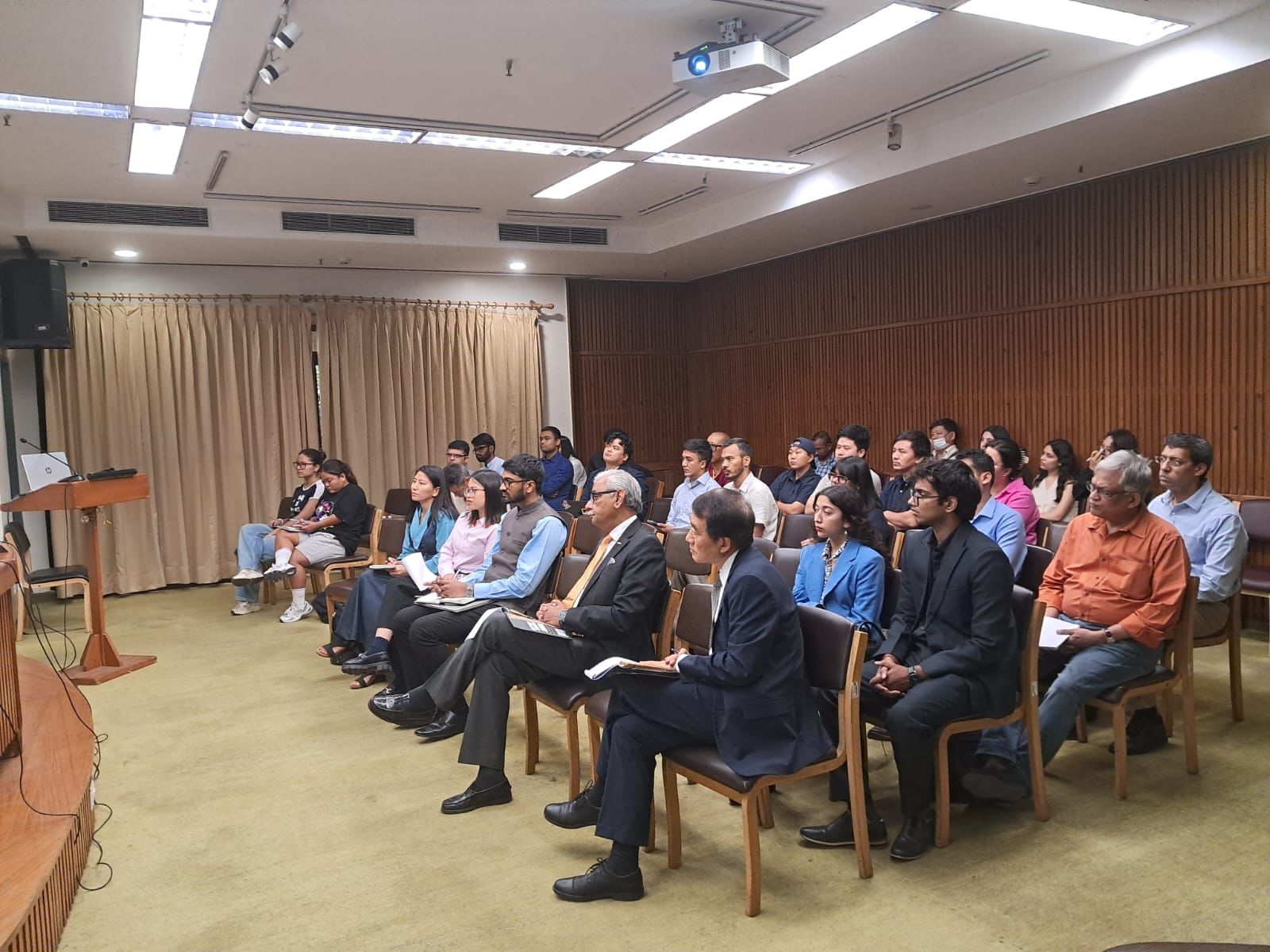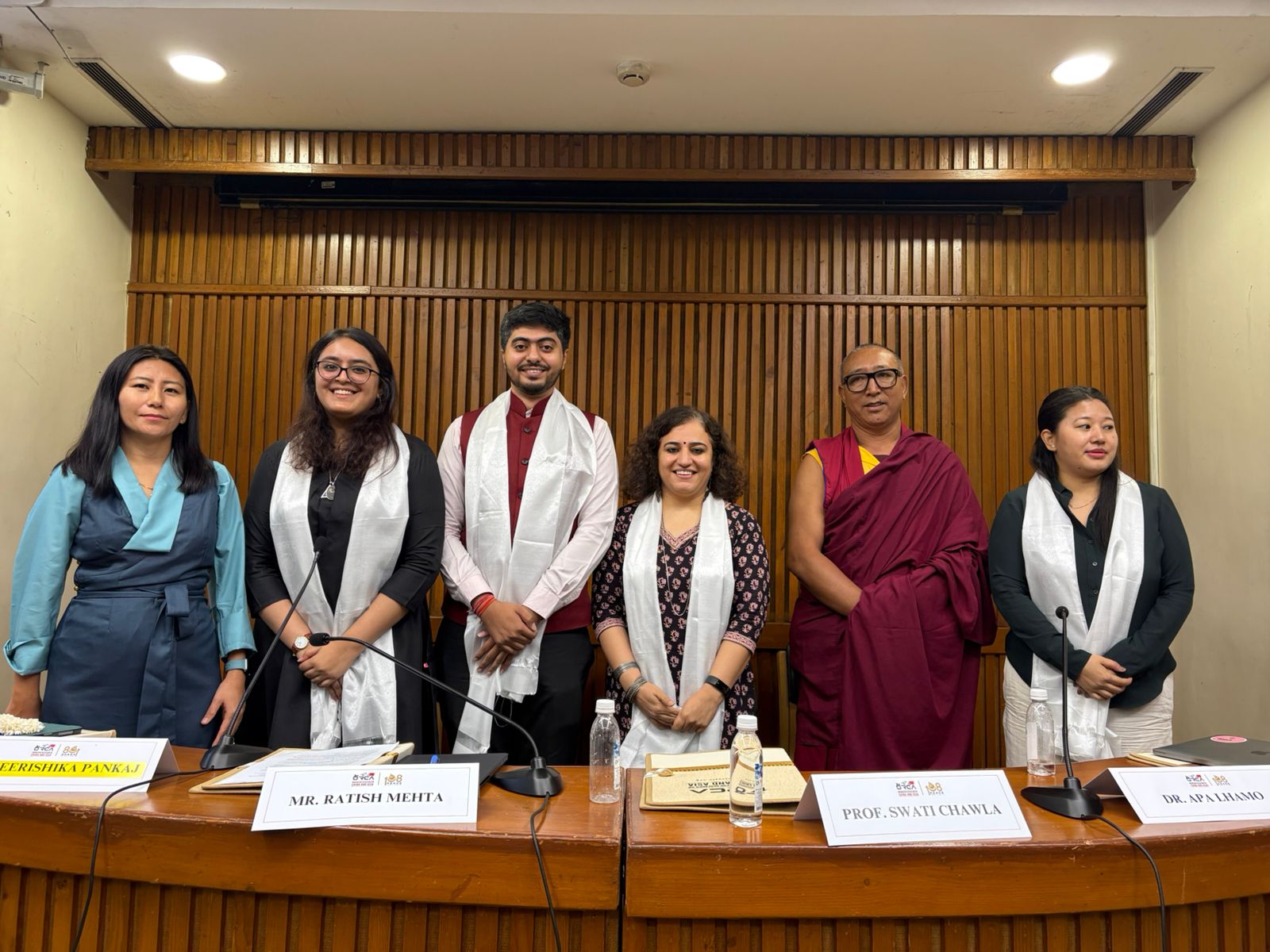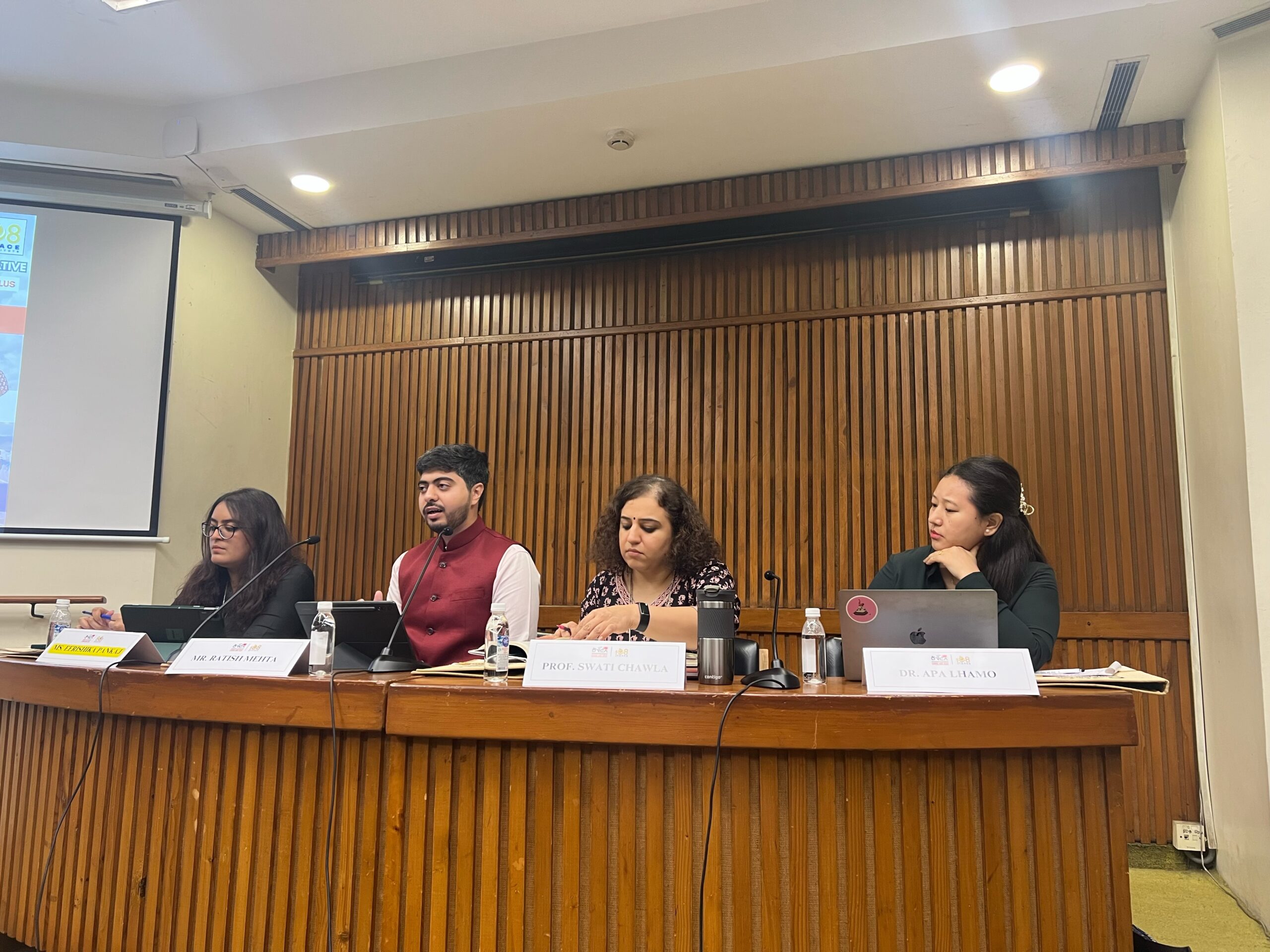May 23, 2025: 108 Peace Institute in collaboration with the Organisation for Research on China and Asia (ORCA) successfully co-hosted a high-level panel discussions on the theme of “Tibet’s Crossroads: Global Stakeholders and the Succession Imperative” at India International Centre (IIC), New Delhi.
The first panel “From Dharamshala to Beijing: The Diplomatic Calculus of the Dalai Lama’s Successor” featured Dr. Swati Chawla, Associate Professor, O.P Jindal Global University; Mr Ritesh Mehta, Senior Research Associate, ORCA; Dr Apa Lhamo, Research Fellow, Centre for China Analysis & Strategy. Ms. Eerishika Pankaj, Director of ORCA moderated the discussion.
Ms. Eerishika Pankaj opened the panel by emphasizing the Dalai Lama’s succession not merely as a religious transition but as a major geopolitical concern. She underscored Beijing’s intent to assert dominance over the reincarnation process as part of its broader strategy to legitimize its control over Tibet. This maneuver, she warned, risks legitimacy both domestically and internationally. India, as the home of the Dalai Lama and the likely origin of his next reincarnation, occupies a pivotal role. Ms. Pankaj highlighted India’s responsibility to act in accordance with its democratic values, even as it navigates complex relations with China. She noted that the Dalai Lama’s significance spans political, spiritual, and cultural domains across the Himalayan region, and concluded by urging greater international coordination, with India positioned to take a leading role.
Dr. Swati Chawla brought a nuanced cultural and historical lens to the conversation. She underscored the Dalai Lama’s deep-rooted influence among Himalayan communities, including non-Buddhist populations such as those in Turtuk, where his visit revealed a profound reverence and connection. Dr. Chawla cited the 2022 resolution by the Indian Himalayan Council of Nalanda Buddhist Tradition, which categorically rejected any successor chosen by Beijing to serve political purposes. She commended the Dalai Lama’s efforts to preserve Tibetan heritage in exile, notably by the establishment of educational and monastic institutions.
As a historian, Dr. Chawla critiqued the narrow geographical framing of the issue, urging greater attention to regions like Ladakh, Sikkim, Bhutan, and Nepal, which are equally vested in Tibetan Buddhism. She quoted the Dalai Lama’s recent reflections in Voice for the Voiceless, stating his successor will be born in a “free world,” ensuring the continuity of his spiritual mission rooted in compassion, cultural identity, and moral leadership. In her concluding remarks, Dr. Chawla echoed the Dalai Lama’s appeal for enduring support, calling on India to stand firmly by the Tibetan community’s wishes in determining the future of their spiritual leadership.
Mr. Ratish Mehta expanded the conversation to include security and diplomatic implications, particularly for India. He argued that the succession is a flashpoint in India-China relations, given China’s aggressive stand on reincarnation. This scenario could force India to take a definitive position, potentially straining the delicate balance it maintains between cultural solidarity with Tibetans and cautious diplomacy with Beijing. Mr. Mehta advocated for a clear, forward-looking Indian policy that prepares for Beijing’s predictable action. He emphasized that India, with its civilizational ethos rooted in justice, compassion, and its constitutional commitment to religious freedom, must play an active role in engaging global stakeholders and articulating a principled and timely policy framework on the succession of the Dalai Lama.
Dr. Apa Lhamo pointed out that Tibetans consider discussing reincarnation while the Dalai Lama is alive as inauspicious and condemned the Chinese Communist Party’s (CCP) deliberate politicizing of the sacred tradition to reinforce its control over Tibet. Central to this effort is Order No. 5, which gives the Chinese state control over the recognition of religious leaders. Dr. Lhamo described the methods employed by China—ranging from surveillance and coercion to promoting state-approved figures such as Gyaltsen Norbu, who is widely rejected by Tibetans as illegitimate. However, she also noted that the Chinese appear to be maintaining a degree of mistrust against Gyaltsen Norbu, which is evident from his meetings with senior CCP officials, including Wang Huning and Shi Taifeng, during which he has been repeatedly, told to further improve his political convictions and ideological allegiances. She mentioned his conspicuous absence during a powerful earthquake that struck Shigatse – home to Tashi Lhunpo monastery, the traditional seat of the Panchen Lamas. Gyaltsen Norbu did not visit, but rather “prayed” for the victims from Beijing. There is perhaps an underlying fear that he might follow the path of the 10th Panchen Lama, who despite initial cooperation with the state, ultimately challenged its policies through his historic 70,000-character petition.
She also drew attention to China’s international strategy to promote its narrative on reincarnation through global Buddhist conferences and forums. She warned that this dual domestic-international strategy poses deep cultural and diplomatic risks.
In her closing remarks, Ms. Pankaj reiterated the geopolitical stakes for India. Should there be two Dalai Lamas, with one by Beijing and the other selected by the current Dalai Lama, she highlighted the potential of rising tensions along the India-China border as China would push for recognition of its selection. She recommended that there should be a greater policy understanding between democratic nations to deal with the succession process via proactive international engagement on the topic to prevent destabilization in the region and bilateral tensions with China.
The event witnessed the participation of more than 50 representatives from 25 organizations and universities.


